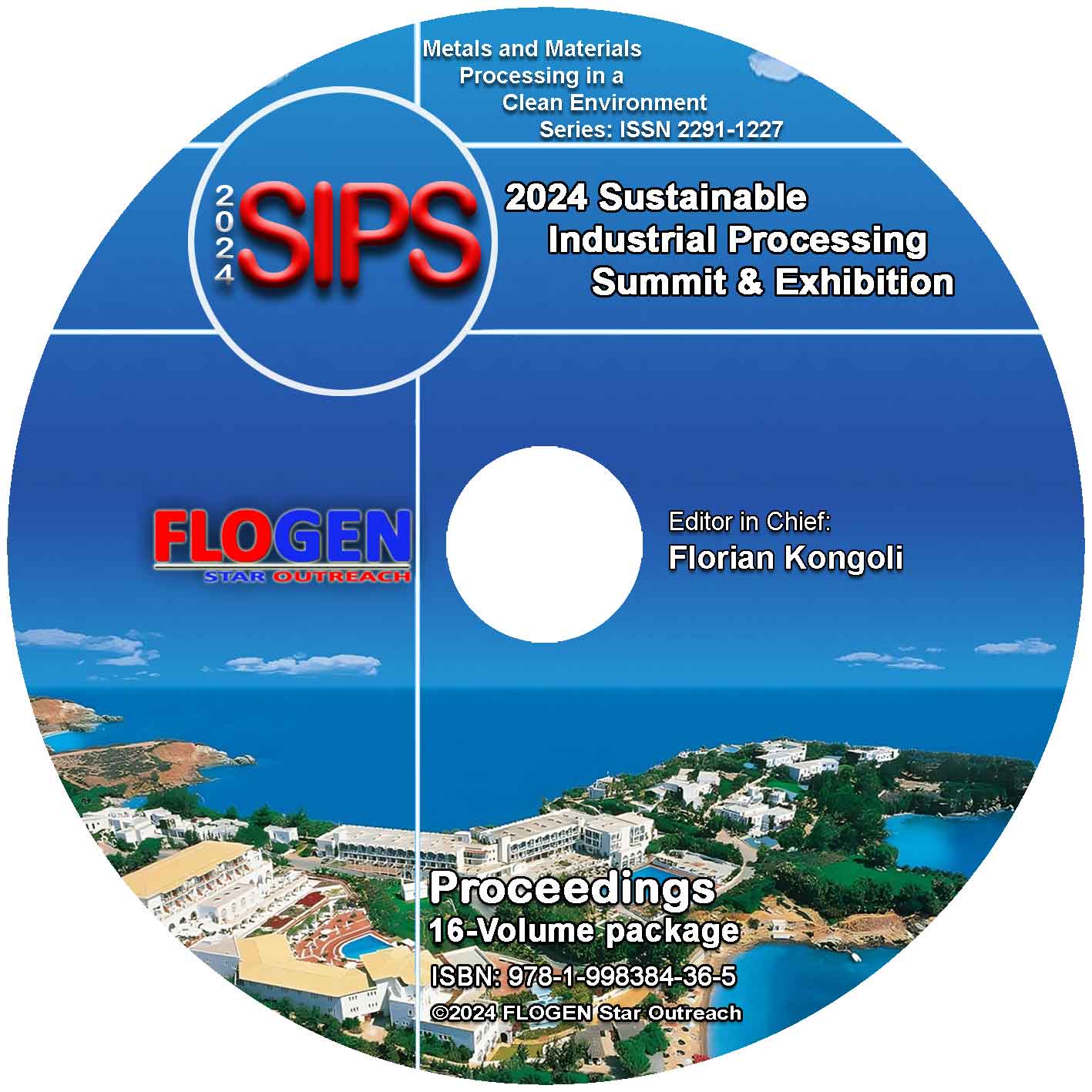2024 - Sustainable Industrial Processing Summit
SIPS 2024 Volume 4. Kanatzidis Intl. Symp / Solid State Chemistry and Materials
| Editors: | F. Kongoli, M.A. Alario-Franco, I. Chung, M. Delferro, O. Farha, H. Kageyama, F. Marquis, A. Navrotsky, A. Tressaud, P. Trikalitis |
| Publisher: | Flogen Star OUTREACH |
| Publication Year: | 2024 |
| Pages: | 222 pages |
| ISBN: | 978-1-998384-10-5 (CD) |
| ISSN: | 2291-1227 (Metals and Materials Processing in a Clean Environment Series) |

CD shopping page
THE POST-SYNTHETIC MODIFICATION OF METAL-ORGANIC FRAMEWORKS FOR IMPROVING PERFORMANCE IN SEPARATIONS
Wendy Queen1;1EPFL, Sion, Switzerland;
Type of Paper: Keynote
Id Paper: 156
Topic: 52
Abstract:
Among several classes of porous materials, metal-organic frameworks (MOFs) are particularly attractive due to their unprecedented internal surface areas (up to 7800 m2/g),[1] easy chemical tunability, and strong, selective binding of a host of guest species. Through judicious selection of MOF building blocks, which include metal ions and organic ligands, one can readily modify their properties for a variety of potential applications. Despite these attractive features, there are still challenges in the field that limit our ability to use MOFs as a solution for a wide range of industrial problems. For instance, some MOFs have limited mechanical and chemical stability, particularly in highly humid, acidic or basic environments. Overcoming this problem could lead to extended lifetimes and hence increased feasibility for their use in areas where such conditions are required.
In response to these needs, we have recently begun to combine MOFs and polymers in an effort to boost MOF performance and extend their stability.[2] Our recent work demonstrates that selected polymers can significantly enhance MOF performance in a number of important liquid and gas separations[3-6] as well as extend catalyst lifetimes in selected reactions.[7] In addition to this, controlled polymerization processes were employed to enhance the mechanical stability[8] of large pore frameworks and extend the chemical stability of a number structurally diverse MOFs not only in humid environments, but also in acidic and basic media.[9] We hope such work can help bring these frameworks a few steps closer to their deployment into a range of ecologically and economically important applications. In this presentation our recent work devoted to modification of MOFs and their application in several globally relevant separations will be outlined.